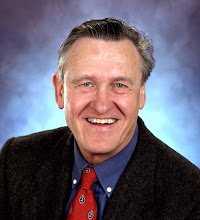The recent surge in fake news has created the demand for government
regulations, mostly out of concern that it influenced the last U.S.
presidential elections. Regulations would be warranted only if fake news
actually affected the outcome and if it could also be inexpensively identified
and eliminated.
Fake news very likely had no effect on the election outcome under the
reasonable assumptions that both major parties used it to the same degree and
their targeted audiences were equally likely to evaluate it properly. The
amount and success of fake news originating in Russia is not known but its
existence should prompt policies aimed at it alone, not all U.S.
communications. That is because the cost of discovering and eliminating fake
news is very high, requiring large and costly banks of computers and
sophisticated algorithms. The data in the computers conjure concerns over
privacy. Importantly, the interpretation of the algorithms risks that the
individuals doing the work will let personal ideological and political
preferences influence it.
I have had some personal experiences that illustrate this risk. In 1975,
I presented a lecture on the future of the international monetary system to the
graduating class of the Diplomatic Academy of Chile in Santiago. To my
surprise, I found no evidence of the public protests against the Pinochet
regime that I had expected after seeing them regularly on CBC.
To understand the difference between the TV news coverage and reality, I
asked Canada’s ambassador to Chile, who said other Canadian visitors made the
same observation. He then told me that a few days earlier his people had
learned that a CBC TV crew had landed in Santiago without following the normal
protocol of informing him of its arrival. He discovered that the TV crew had a
pre-arranged meeting with a Chilean group in a poor part of the city. The
Chileans arrived armed with anti-Pinochet placards. They waved these placards
and chanted slogans while the CBC crew filmed them from an angle that suggested
a larger crowd. He said the crew paid the villagers who then stored the
placards for later use and dispersed. The day after the performance, Canadians
saw on TV a supposedly big demonstration in Santiago protesting the country’s
president.
In the 1980s, I saw fake news about South Africa, where I taught
economics for a semester at the University of Cape Town. There I befriended a
Dutch doctor and his wife. They were interns at the famous Groote Schuur
hospital, and their parents in the Netherlands were worried that they might get
caught in the deadly riots that Dutch newspapers regularly described. One of
their letters included a newspaper picture of a scene allegedly showing the
aftermath of such a riot. The scene was of the hospital’s courtyard. The same,
landscaped yard the couple saw each day and where staff often ate their lunches
and took naps on the grass. It was no riot scene. Something had been faked.
These two episodes illustrate the extent to which supposedly objective
media can and do produce fake news slanted by the political views of their
managers and employees. We should expect the same from any proposed agencies
charged with the objective task of suppressing fake news. For these reasons, it
seems better to prevent the likely small cost of fake news by relying on the
common sense of the common people rather than rely on the decisions of a few
employees of government agencies.
Herbert
Grubel is emeritus professor of economics, Simon Fraser University.
The article was published in the Financial Post on May 2, 2018
.jpg)